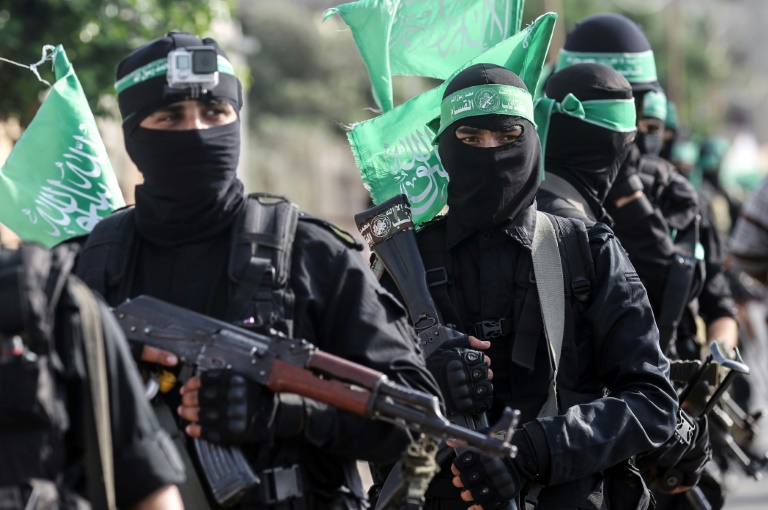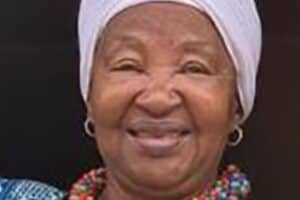Israel said it struck 25 more Hamas sites overnight after a barrage of rocket and mortar fire from the Gaza Strip, denying Palestinian claims of a ceasefire Wednesday after the worst flare-up since a 2014 war.

The exchange of fire raised the possibility of yet another war in the beleaguered Palestinian enclave run by Islamist movement Hamas, which would be the fourth since 2008.
Israel has targeted more than 60 military targets in the Gaza Strip over 24 hours, saying some 70 rockets and mortars were fired into its territory throughout the day Tuesday, a number of which were intercepted by air defence systems.
Three Israeli soldiers were wounded, one moderately and two lightly, the military said. There were no immediate reports of casualties in Gaza.
But after Tuesday’s flareup, followed by sirens and explosions into the night, there were Palestinian claims of a ceasefire.
Late Tuesday, an Islamic Jihad spokesman said a ceasefire agreement had been reached, and on Wednesday senior Hamas official Khalil al-Hayya also spoke of an accord.
There was relative calm in the Gaza Strip on Wednesday morning.
Israel’s military had not commented, but Intelligence Minister Yisrael Katz denied talk of a deal.
“Israel does not want the situation to deteriorate, but those who started the violence must stop it,” he told Israeli public radio.
“Israel will make [Hamas] pay for all fire against Israel.”
Tuesday’s violence followed weeks of deadly unrest along the border between Israel and the blockaded Palestinian enclave.
In a rare joint statement, Hamas and Islamic Jihad declared shared responsibility for the rocket and mortar fire, saying it was in retaliation for Israeli attacks targeting their positions.
Three Islamic Jihad members were killed in an Israeli strike Sunday, and the group vowed revenge.

Palestinian and Arab Israeli protesters wave Palestinian flags at a demonstration during the 70th anniversary of Israel’s founding on April 19, 2018
High alert
Early Tuesday, some 28 mortar shells were fired toward Israel from the Gaza Strip.
Israel said most were intercepted by its air defence systems, but put residents in the area on high alert, ordering them to stay within 15 seconds of shelters.
One mortar shell exploded near a kindergarten building, a military spokesperson said, damaging the structure. No children were present at the time.
It was the largest barrage fired from Gaza into Israel, and Israel’s biggest response, since a 2014 war.
The United Nations Security Council is expected to meet Wednesday to discuss the violence, following an American request for an urgent meeting.
“The Security Council should be outraged and respond to this latest bout of violence directed at innocent Israeli civilians,” US ambassador Nikki Haley said.
Kuwait, a non-permanent council member representing Arab countries, circulated a draft resolution calling “for the consideration of measures to guarantee the safety and protection of the Palestinian civilian population”.

Fighters of the armed wing of Palestinian Islamist movement Hamas.
Explosions shake enclave
Prime Minister Benjamin Netanyahu had vowed Tuesday to “respond to these attacks powerfully”.
Shortly after he spoke, Israel’s military began air strikes in Gaza. Explosions shook the Palestinian enclave and smoke rose from the sites hit.
Later in the day, further rockets or mortar rounds from Gaza were intercepted, the army said. It said some of the mortars fired were supplied by Iran.
Israel’s military said it had responded by hitting “military targets” including a tunnel stretching into its territory, weapons stores and militant bases.
Israel’s military said it was not seeking an escalation, but warned Hamas.
“They have the ability, the control and the power to escalate or to deescalate the situation, to rein in the Palestinian Islamic Jihad and their own extremist factions in Hamas or to escalate the situation,” said military spokesman Jonathan Conricus.
Islamic Jihad is the second-largest armed group in Gaza after Hamas.
Hamas said in a statement Tuesday that “what the resistance carried out this morning comes within the framework of the natural right to defend our people”.
“The Israeli occupation bears full responsibility for any upcoming escalation,” it said.
Separately on Tuesday morning, Palestinians launched boats from Gaza to protest Israel’s blockade, in what they said would be a peaceful demonstration.
Israeli forces later stopped and seized the main protest boat as it approached the blockade limit at nine nautical miles, while others were said to have turned back.

A Palestinian demonstrator wearing an Anonymous mask protests on the Israel-Gaza border.
Weeks of protests
Tuesday’s incidents followed weeks of deadly demonstrations and clashes along the Gaza-Israel border, beginning on March 30.
The protests demanded that Palestinians who fled or were expelled in the 1948 war surrounding Israel’s creation be allowed to return to their former homes, now inside Israel.
They peaked on May 14, when at least 61 Palestinians were killed in clashes as tens of thousands of Gazans protested the US transfer of its embassy in Israel from Tel Aviv to Jerusalem the same day.
Low level demonstrations and clashes have continued ever since.
At least 121 Palestinians have been killed by Israeli fire in the unrest. No Israelis have been killed.
Israel says its actions are necessary to defend its borders, accusing Hamas of encouraging thousands of Palestinians to break through the border and attack Israelis.
But Israel has faced international criticism and calls for an independent investigation over its use of live fire during the protests and border clashes.
The Gaza Strip has been under Israeli blockade for over a decade, which Israel says is necessary to prevent Hamas from obtaining means to attack.






